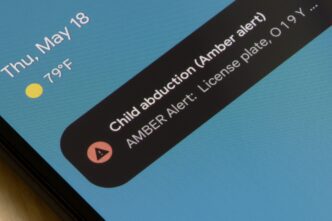As the clock strikes midnight on January 1st, Florida will implement a series of new laws aimed at regulating social media usage among teenagers and enhancing protections for first responders.
Beginning January 1st, individuals under the age of 14 in Florida will no longer be allowed to create social media accounts, while those aged 14 and 15 will require parental consent. Governor Ron DeSantis noted the increasing concern over online predators who exploit these platforms to infiltrate homes and target vulnerable users. ‘You have predators who can get right in there, into your own home. You can be doing everything right, but they know how to manipulate these different platforms,’ he stated.
This legislation, HB 3, places the onus on social media companies to ensure compliance, making them liable for fines ranging from $10,000 to $50,000 per incident if they fail to verify user ages appropriately. Attorney Anthony Rickman explained the implications, stating that platforms could be held accountable if a minor accesses their services without valid parental consent. To enforce age restrictions, companies like Facebook employ verification processes that include uploading identification documents or utilizing artificial intelligence software, such as Yoti, to determine users’ ages through facial analysis.
The law has met with resistance from the Computer & Communications Industry Association, representing significant tech entities, who argue that the legislation infringes upon First Amendment rights. Legal action has been taken to prevent the law from taking effect, although a judicial decision remains pending.
In addition to these measures, another law, HB 184, introduces new penalties for obstructing first responders, marking 2025 with stricter enforcement. Known as the ‘Halo law,’ it establishes a 25-foot buffer zone around first responders, penalizing those who violate this perimeter or interfere with their duties. The Tampa Police Benevolent Association President, Brandon Barclay, emphasized that enforcement will be situational, with violations considered on a case-by-case basis.
Further legislative changes in 2025 will require local governments to expedite the building permitting process, as outlined in HB 267. This law mandates faster approval or denial times for permit requests, shortening the review period from 120 days to 30 business days for small structures and 60 business days for larger ones. This adjustment is aimed at enhancing efficiency in the construction sector and minimizing bureaucratic delays.
These new laws reflect Florida’s commitment to strengthening online safety for minors and ensuring the effective operation of first responders. As these measures take effect, their impact on social media companies, government operations, and public interactions will become evident.
Source: Fox13news








